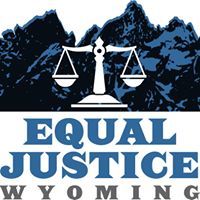Laramie County, Wyoming
Free legal advice or legal representation for people who cannot afford it.
Welcome to our Laramie County, Wyoming legal help and services page.
Legal Aid is for people who may not be able to afford an attorney. In order to qualify for legal aid at these non profit organizations listed below, you will need to contact them directly.
We provide the details of these offices to save you time in your search for legal aid. Our details include names, addresses, frequently asked questions, qualifications, etc where we can find them.
Legal aid services can include the following legal services for situations involving: Domestic violence, family law, housing rental evictions or home foreclosures, public assistance such as medicaid, food stamps, SSI Disability, SSDI benefits, public housing evictions, disability beneifts, etc.
Finding hard to locate resources for legal is what LegalAidOffices.com is all about. We scoured thousands of non profit resources to find as many local resources for free legal assistance as we can. View our listings below.
Search Results:
-
 Legal Aid of Wyoming - Cheyenne Office Email Website Learn more 1920 Thomes Ave
Legal Aid of Wyoming - Cheyenne Office Email Website Learn more 1920 Thomes Ave
Cheyenne, WY - 82001
(307) 432-0807
Legal Aid of Wyoming Inc. is a federally funded, non-profit law firm. We provide legal assistance to low income individuals across the state of Wyoming. Legal Aid can only provide services in those cases where the civil action is brought in Wyoming courts. Legal Aid provides representation in many,...See Full Details
 Equal Justice Wyoming Email Website Learn more 2300 Capitol Ave.
Equal Justice Wyoming Email Website Learn more 2300 Capitol Ave.
Cheyenne, WY - 82002
(307) 777-8383
Equal Justice Wyoming hosts free legal clinics several times a month throughout Wyoming. Advice at legal aid clinics is limited to non-criminal matters, such as: family law; probate, such as wills or advance directives; real property; landlord/tenant; public benefits; federal tax issues; and c...See Full Details
Wyoming Cities
Important Information
Legal Aid Funding
Legal aid professionals and organizations oftentimes receive government funding for taking on cases with those who cannot afford attorneys. For the most part, funding is limited so legal aid entities can only take on a limited amount of cases. Qualifications are often rigid.Resources